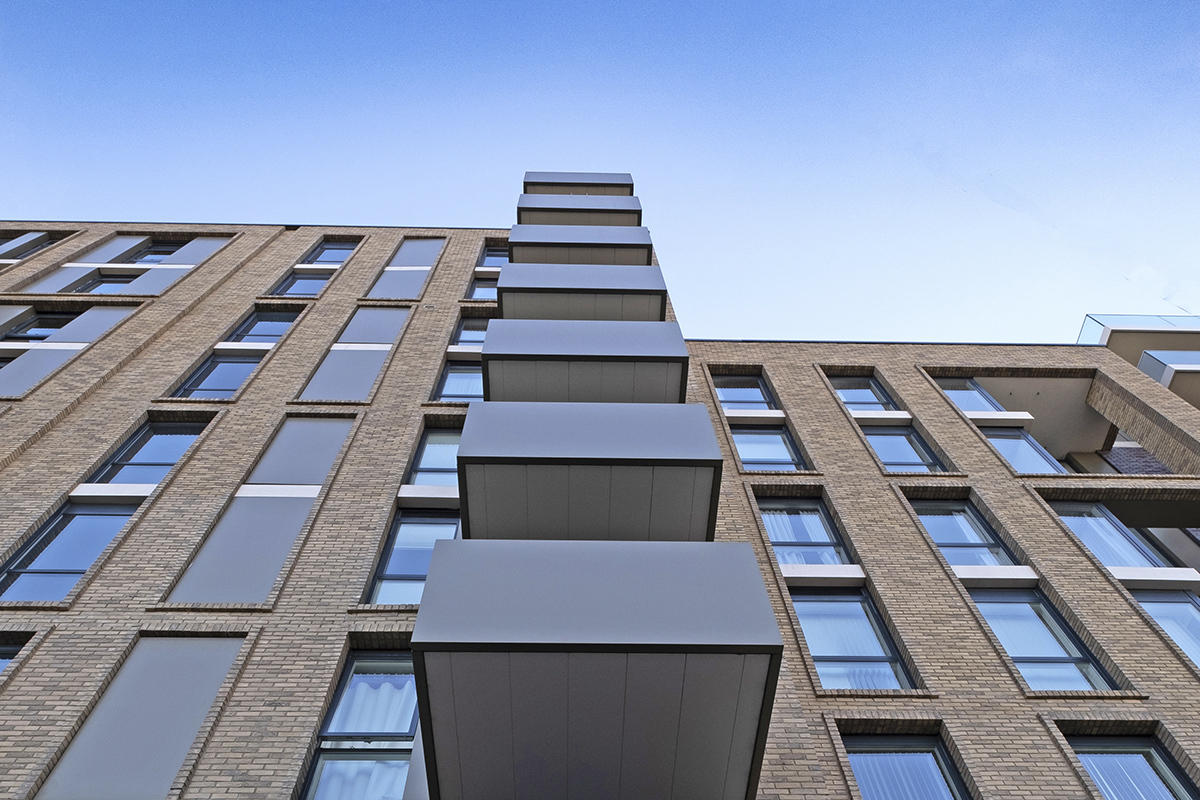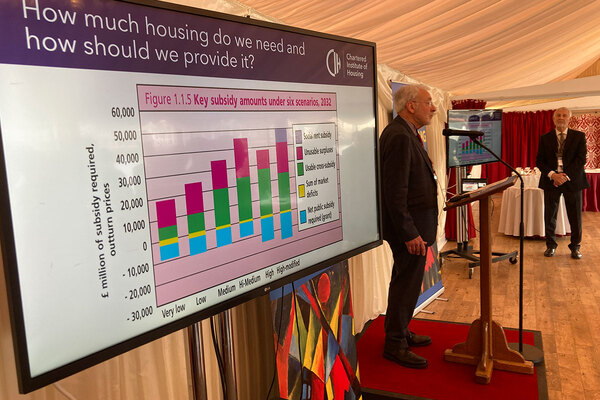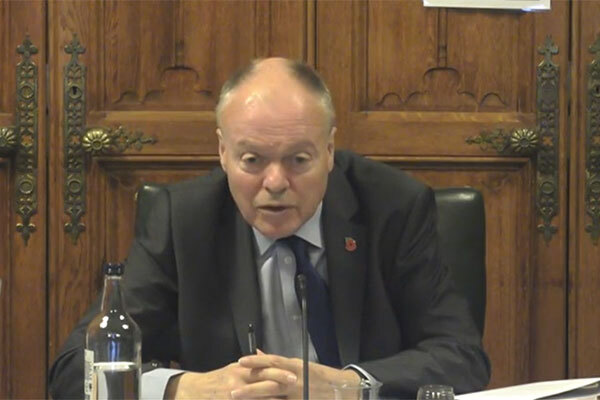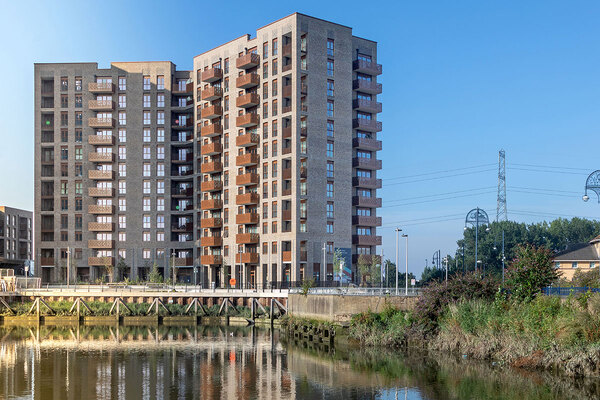You are viewing 1 of your 1 free articles
Leave affordable rent to private sector and free up grant funding for social housing, MPs recommend
Affordable rent homes should be provided by private investment to free up grant funding for more social housing, a cross-party parliamentary inquiry has concluded.

Following its investigation into the finances and sustainability of the sector, the Levelling Up, Housing and Communities Committee criticised the government’s current use of grant to fund mainly affordable rent and shared ownership housing, rather than social rent homes where residents have the lowest rents.
This funding model was “inefficient”, the MPs said, when “these homes can be financially viable with no direct grant”.
They recommended the government should assess the role of private investment providing affordable rent, to “free up grant funding” for more social housing provision.
In addition, the government should scale up investment so that the country can hit a target of 90,000 new social rent homes a year, they said.
As a “first step”, the government should set and publish a target for the number of social rent homes it intends to build each year, they added.
The MPs’ recommendations came after an inquiry into the finances and sustainability of the social housing sector was launched in June 2023.
In its final report, the committee found that the social housing sector was “under serious financial pressure”, although it “remains resilient for the time being”. It has been “presented with massive bills” for decarbonisation, fire safety and improving old homes, it said, while rent rises were “unexpectedly capped”.
To deal with these costs, housing providers have cut their building programmes at a time when the country “needs to build significantly more social housing”. If this continued, the MPs said, it will present “a major problem for individuals that need social housing”.
The MPs said land value capture should be used to support social housing. The government and councils should use planning powers within the Levelling-up and Regeneration Act 2023 to ensure that the price of land does not “inhibit the development of new social homes”.
The report also concluded that the social housing sector had “received too little help” from the government to meet the cost of “expensive improvements” to existing homes. Decarbonisation and fire safety funding, likewise, were “insufficient”, it said.
The government should make more funding available for regeneration, and Homes England should increase flexibility for housing providers on funding for replacing homes, it added. Since 2023, Homes England has opened up grant funding for regeneration projects, although it is “restricted” by the government’s net additionality guidelines from funding refit and refurbishment projects.
Finally, the MPs said the Regulator of Social Housing should engage with registered providers more regularly where they face more financial risk, adding “the possibility of even one housing association defaulting on its loans could have a knock-on effect on the rest of the social housing sector’s ability to attract investment”.
Clive Betts, chair of the Levelling Up, Housing and Communities Committee, said social landlords were being “buffeted by a range of serious financial pressures”.
He said: “There is a chronic social housing shortage. There are pressing demands to invest in improving homes, so they are not blighted by mould, damp and leaks, and to decarbonise the housing stock and fix building safety defects. More social homes are needed.
“The government must act to fix this situation by committing to focus investment on building the social homes the country needs.”
Cllr Darren Rodwell, housing spokesperson for the Local Government Association, said: “There are currently not enough affordable homes to meet demand, with more than 1.2 million households on council waiting lists in England and over 100,000 households living in temporary accommodation – this is a record high.”
He urged the government to reform Right to Buy to “spark a council house building renaissance”, adding that long-term certainty on powers and funding could help councils deliver 100,000 social homes a year.
A London Councils spokesperson said: “Without more government investment it is hard to see anything but a bleak future for social housing.
“Our analysis shows London boroughs face a black hole of £700m in their social housing budgets over the next four years, despite the desperate need to improve housing conditions and build new homes in the capital. With resources massively squeezed, it feels like we’ve been left with mission impossible.”
James Prestwich, director of policy and external affairs at Chartered Institute of Housing, said: “For some time now the social housing sector has been calling on the government to acknowledge the financial pressures it is facing and to invest more effectively in supply and maintenance.
"[The] report from the LUHC committee helpfully brings together evidence from a range of organisations and individuals, highlighting the partnership role that government must play in supporting the urgent supply of more social housing as well as its maintenance and future-proofing.
A Department for Levelling Up, Housing and Communities spokesperson said: “Our long-term plan for housing will support the delivery of more homes, including additional social housing.
“Since 2010 we have delivered over 696,100 new affordable homes, of which over 172,600 are for social rent, and we are on track to deliver on our target for new social homes.
“We are driving up standards in social housing with funding for providers to improve homes and through Awaab’s Law, which will help to ensure homes across the country are safe, decent and warm by making social landlords act to fix health hazards within a strict timeframe.”
An Regulator of Social Housing spokesperson said: “We have a crucial role in regulating the sector’s financial viability. Because of our work the sector has a long track record of no loss on default, meaning that no lender has lost money from investing in social housing and no tenants have lost their home as a result.
“We continue to monitor the sector’s financial viability closely, including through our quarterly surveys. We scrutinise landlords’ exposure to financial risk and take action when they fail to meet our standards.
“Social landlords continue to attract private investment. They have significantly increased the amount they spend on improving tenants’ existing homes, while continuing to build new ones for the future.
“It is clear from the select committee report, as well as our own analysis, that landlords are dealing with a range of competing challenges. Landlords need to manage these risks carefully as they work to provide more and better homes for people who need them.
“We welcome the select committee’s report on the social housing sector’s finances and we will carefully consider its recommendations.”
Sign up for our development and finance newsletter
Already have an account? Click here to manage your newsletters











